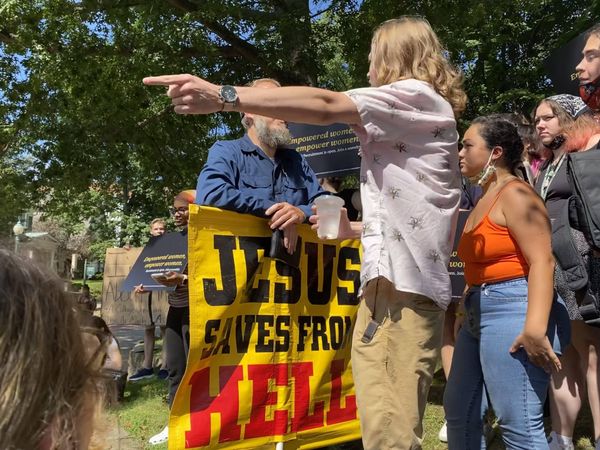We think of the church as the place we go, or don't go, on Sunday mornings. Our mindset of the church has been split into different denominations, different ways of going about things. When we think about what God intended the church for though, it was not like this at all. The church was intended to be the people of God. The church was never meant to be a building or a denomination, it was meant to be a family.
But within the family things get complicated. People become offended by churches. People get hurt, and they let this put a wedge in their personal relationship with Christ. What offends people the most? Judgement. Judgement passed on them for their current, or even past sins. Why? Because of society.
Society tells us that some sins are worse than others. Society tells us that it is more acceptable to be drunk every weekend than cheat on spouses. It teaches us that "little white lies" are okay, but homosexuality is condemned. We grow up in a culture that tells us not to associate with others because of their certain sins. When we think back to the Bible though, is this how Jesus treated others?
Jesus called things as He saw them. He did not sugarcoat things, and he never compromised the truth. There were times when when He grew so frustrated with sinners just like you and I. Matthew 21:12-13 is a prime example of this. Jesus was in the temple when He saw others selling and bargaining inside. He became upset that they had turned the temple into a "den of robbers." So, yes, there were times He was frustrated with the sinful ways of man, but many times He loved. In Luke 19, Jesus called Zacchaeus, a chief tax collector, down from a tree. Jesus stayed at his home, and all who witnessed it were so surprised that Jesus would associate with a sinner such as Zacchaeus. Zacchaeus became a changed man because of that time with Jesus. There are several instances of his grace, just like this. The Samaritan woman at the well (John 4), Peter and his constant doubting and slip-ups, and the sinner hanging on the cross next to Jesus (Luke 23:40-43.) In John 8, Jesus is at the Mount of Olives, where he sees a woman accused of adultery. In this time, the punishment for adultery was to be stoned to death; however, Jesus came to this woman's defense. In verse 7, He declared "Let he who is without sin, cast the first stone."
This is such a powerful moment in scripture to me, because how often do we cast our (hypothetical) stones on others? We are all sinners, every single one of us. God does not see our sins as buildings from the perspective of being on the ground; this would mean He sees sins as bigger or smaller than other sins. Rather, He sees our sins as buildings from a bird's eye view; from above, there is no differentiate which ones are taller or shorter.
We have to stop driving each other away from the church. Yes, we are to hold each other accountable, but by no means should we be viewing ourselves as any better than a fellow brother, sister, or even someone who has not come to Christ yet. Homosexuality is no worse than continuous alcoholism, or habitual lying, gossiping, or constantly doubting Him. God sees these on-going sins as all equal. Open your doors and your hearts to those from all walks of life; we all struggle with our own sins in many, many different ways. We do not know the true intentions of each others hearts, that is up to God to judge, so stop judging others away from the church - welcome them. I don't know about you, but I am ready to see a less rigid church, and a more loving church, a more loving body of Christ, instead.





















